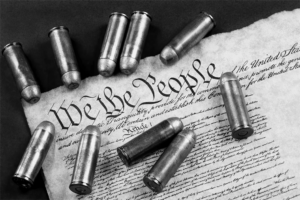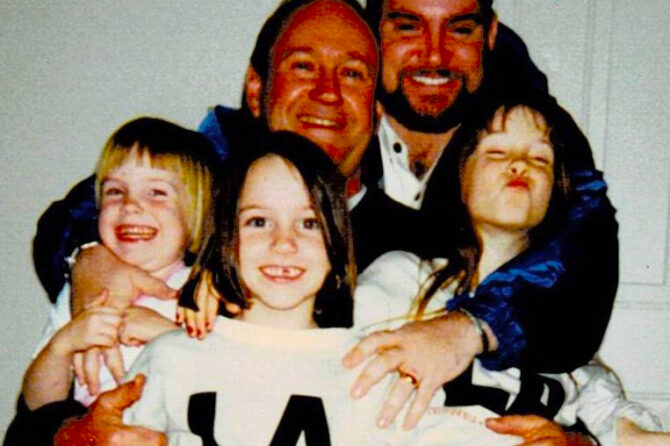In a small town in Pennsylvania in 2005, Trish Ambrose’s 18-year-old neighbor, and good friend to her son, fatally shot his parents at point-blank range.
“I was interrupted while dressing that morning by a phone call from [the killer’s sister] telling me that her parents had been shot, and she was hiding in a neighbor’s locked bathroom,” Ambrose recalled. “In time my son and I were allowed past the police cordon and permitted to be in the mobile police unit with our young friend and her little brother, while law enforcement secured the scene.”
That horrific day started Ambrose’s family – and the surrounding community – on a trajectory of grief and media scrutiny that would last for years and would eventually lead Ambrose and her family to relocate across the country to Silverton.
“While it is no longer something that any of us ruminates over on a daily basis,” Ambrose noted, “it continues to haunt us, and is often a subject of ruminations and discussion for all of us who were impacted by it.”
For Ambrose, who did not grow up around guns, the topic of gun-related violence was never a major concern. And even a stint spent in a high crime area of Chicago during the early years of her marriage did not markedly raise her level anxiety about the issue the way that single day in 2005 did.
“I truly think that unless you have been personally impacted by gun violence, you do not understand the emotional impact it has had on victims,” Ambrose said, speculating that a similar lack of first-hand experience may be one of the greatest hindrances to the public’s debate of the topic. “One of the things that is the most challenging in any discussion surrounding this issue, arises when it seems that people are discussing it coldly and theoretically, like any other topic, with no first-hand experience.”
But not everyone touched by gun-related violence experiences the same change in opinion. Chris Mayou – a Silvertonian whose daughter, 40-year-old Jennifer Black, was fatally shot by a gunman at a Salem bar on August 18, 2019 – believes her feelings about guns and the damage they can inflict remained unchanged after the loss of her daughter.
“My daughter died from gun violence,” she stated. “Honestly, the word ‘gun’ is the least important word in that sentence to me, her mother. Remove it, and our family’s grief is the same. Her children have still lost their mother. The cause of her death is the same – violence.”
For Mayou the real issue of violence in America is being clouded by an unnecessary preoccupation with the weapon used while the real problem, as she sees it, is the underlying cause of the violence itself.
Mount Angel resident, Peggy Andrews agrees.
“I find it appalling that people insist on blaming a piece of metal and wood for crimes against humans in this country,” she said. “The gun has no more responsibility for the senseless shootings and violence than a car does for fatality crashes on our highways. It has always been and will continue to be the person holding or operating the weapon that is the issue.”
At 64 years of age and with a 35-year career as a paramedic and paramedic instructor behind her, Andrews has had much exposure to the harm that guns can cause and yet she remains decidedly against the removal of guns from the public sector.
“My occupation definitely influenced my feelings about guns and gun control,” she began. “Primarily it reinforced a long-held belief of mine that it’s not the guns that are the problem; the problem seems to be people with poor control, lack of respect for others’ lives, unresolved anger, etc.”
And remarkably, despite the pain gun-violence has caused both Ambrose and Mayou, they agree with Andrews, lobbying for, not an outright ban on guns, but rather an improvement to the protocol surrounding gun sales.
“[W]e need laws that allow for limited gun ownership by responsible people,” Mayou, whose husband currently owns several guns used for hunting, said. “This might involve better background checks, licensing, education, protecting children from accidental firearm injuries, and limiting the types of guns and the amount of ammunition a person could own.”
But, although she does not suggest the removal of all guns, she did propose a limitation or outright ban on the sale of semi-automatic and military-style guns and weapons.
“Based on news reports, there were five shots fired when my daughter was killed,” she said. “I’m grateful that no one else died. This would have been a very different story if the shooter had used a weapon that allowed more than five shots in rapid succession.”
But even the banning of assault-style weapons is viewed as irrelevant by some, including Audry Van Houweling, owner of She Soars Psychiatry in Silverton.
“Assault weapon bans are a hot topic, but the truth is that the vast majority of gun related deaths are via handguns,” she said.
A gun-owner for the purposes of hunting, Van Houweling also views gun ownership as, instead of the cause of violence, rather the means of carrying it out.
“In my view, which I like to think is a bird’s eye view, the concern cannot be reduced to firearms, but the glorification and acceptance of violence as a whole that pervades our popular culture,” she suggested. “Violence and aggression are celebrated to varying degrees in our media, sporting events, politics, and even religious beliefs. The American version of strength is still very much defined by traditionally masculine characteristics – rugged individualism, stoicism, conquest, competition, and yes, aggression.”
Although Van Houweling recognizes that society is often quick to point to mental illness as the root cause in nearly every case of gun-related violence, she warned that the problem is much more wide-spread – and unfortunately harder to eradicate.
“I think violence is a strong reflection of disconnectedness, shame, and desperation and frankly, as a mental health provider, I think these emotional states are on the rise,” she remarked. “To blame it on guns is short-sighted. To blame it on mental illness is short-sighted. We need to have the courage to confront our deeply ingrained social structures, norms, and policies that compel someone toward violence in
the first place.”
But that violence, to which Van Houweling is referring, is not always the mass shootings or even the day-to-day gang and domestic violence most often portrayed in the media. Rather, the largest number of gun-related deaths – nearly 60 percent in 2017, according to Van Houweling –
is suicide, mostly of older males.
“[I]t might do us more good to question and challenge the shame and stigma that still is very much alive in asking for help and expand tailored mental health services,” Van Houweling advised, noting that, in her opinion, nearly all types of gun-related violence could be decreased by an increase in the availability of a few key resources.
“[P]erhaps for younger men at most risk for homicide we might get further by expanding mentorship, educational, and employment opportunities,” she said. “Violence against women must be prioritized, restraining orders must be enforced, and support services expanded. In my opinion, these efforts better target the foundations of gun-related deaths.”
Similarly, Andrews cited a lack of education, specifically, “a significant decline in teaching values, respect for others, compassion and control of self,” as what she sees as the biggest factors in an increase in gun-related violence.
She reckoned that, “By the time one reaches an age allowing ownership/operation of weapons (guns, knives, cars, etc.) it’s too late to begin teaching basic values,” and that, “ a decline in mental health is responsible for a great many tragic developments in this country, including mass shootings and other violence against people.”
Although not one of these women, despite their experience with the consequences of gun-related violence, is calling for an outright ban on guns, what is clear to each of them is the need for a united front against violence of all types across the nation and governmental support for the resources needed to get there.
“Our society has a moral imperative to strive for equity and inclusiveness,” Mayou said. “We need non-violence to be a way of life for everyone. The inability of our country’s political system to effect meaningful change in the face of unceasing gun violence is a national disgrace.”

